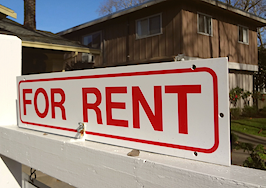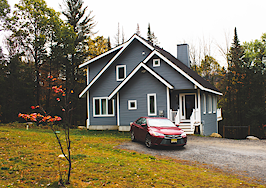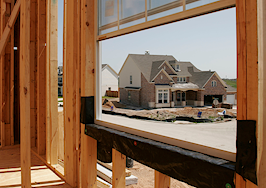Inman Connect New York delivers the perfect blend of outside-the-box thinkers, cutting-edge leaders, and hard-working, successful agents. Join us Jan. 24-26 for crucial content, education, and networking opportunities to help you thrive in today’s changing market. Register here.
Demand for home loans hit the lowest level since 1997 last week as mortgage rates continued to climb toward 7 percent, hitting the highest level in 20 years, according to a weekly lender survey by the Mortgage Bankers Association.
Requests for purchase loans were down a seasonally adjusted 4.5 percent last week when compared to the week before, and 38 percent from a year ago, the survey found. Demand for refinancing was down 7 percent week over week, and 86 percent from a year ago.

Joel Kan
“The speed and level to which rates have climbed this year have greatly reduced refinance activity and exacerbated existing affordability challenges in the purchase market, MBA Deputy Chief Economist Joel Kan said in a statement. “Residential housing activity ranging from new housing starts to home sales have been on downward trends coinciding with the rise in rates.”
Requests for adjustable-rate mortgage (ARM) loans accounted for 12.8 percent of all applications, the highest share since March, 2008.
With rates on 30-year fixed-rate conforming mortgages at the highest level since 2002, “ARM loans continue to remain a viable option for borrowers who are still trying to find ways to reduce their monthly payments,” Kan said.
At 13.6 percent, the FHA share of total applications was up slightly from 13.5 percent the week before, while the 10.7 percent VA share of total applications was down slightly from 10.9 percent the week before.
Mortgage rates’ relentless climb
Demand for mortgages has been falling for four months as rising rates make homes less affordable. With few signs that inflation is cooling, bond market investors are expecting the Federal Reserve to implement its fourth 75-basis point rate hike of the year on Nov. 2.
Last month, at a meeting in which they raised their target for the short-term federal funds rate to 3 to 3.25 percent, Fed policymakers indicated that expect to bring the target up to 4.4 percent by the end of the year, and to 4.6 percent next year.
The CME FedWatch Tool, which monitors futures contracts to calculate the probability of Fed rate hikes, shows traders pricing in a 95 percent probability of a 75-basis point rate hike next month, and a 61 percent chance of another drastic hike of the same magnitude on Dec. 14.
That would bring the short-term federal funds rate to a target range of 3.75 to 4 percent in November, and 4.50 to 4.75 percent in December.
The Optimal Blue Mortgage Market Indices showed rates for 30-year fixed-rate loans hitting 6.982 percent Oct. 13, a new 2022 high. A rate index published by Mortgage News Daily showed rates on 30-year fixed mortgages averaging 7.15 percent on Tuesday.
For the week ending Oct. 14, the MBA reported average rates for the following types of loans:
- For 30-year fixed-rate conforming mortgages (loan balances of $647,200 or less), rates averaged 6.94 percent, up from 6.81 percent the week before. While points decreased to 0.95 from 0.97 (including the origination fee) for 80 percent loan-to-value ratio (LTV) loans, the effective rate also increased.
- Rates for 30-year fixed-rate jumbo mortgages (loan balances greater than $647,200) averaged 6.31 percent, up from 6.25 percent the week before. With points increasing to 0.67 from 0.61 (including the origination fee) for 80 percent LTV loans, the effective rate also increased.
- For 30-year fixed-rate FHA mortgages, rates averaged 6.63 percent, up from 6.61 percent the week before. But with points decreasing to 1.60 from 1.71 (including the origination fee) for 80 percent LTV loans, the effective rate decreased from last week.
- Rates for 15-year fixed-rate mortgages averaged 6.09 percent, down from 6.12 percent the week before. With points decreasing to 1.18 from 1.30 (including the origination fee) for 80 percent LTV loans, the effective rate also decreased.
- For 5/1 ARMs, rates averaged 5.65 percent, up from 5.56 percent the week before. With points remaining at 0.90 (including the origination fee) for 80 percent LTV loans, the effective rate also increased.
Thanks to higher mortgage rates, home price appreciation during the pandemic, and the chance of a recession next year, economists at Fannie Mae said last week they expect home sales will fall by 18 percent this year and by another 21 percent in 2023, to 4.47 million.
Get Inman’s Extra Credit Newsletter delivered right to your inbox. A weekly roundup of all the biggest news in the world of mortgages and closings delivered every Wednesday. Click here to subscribe.
Email Matt Carter













